Snøhetta team to design river walk next to America's second largest waterfall
Architecture and landscape firm Snøhetta has been appointed to develop plans for a new public access route along Willamette Falls in Oregon, the second largest waterfall in the US (+ slideshow).
Snøhetta will lead a design team including Portland-based landscape studio Mayer/Reed and architecture and engineering firm Dialog on the Willamette Falls Riverwalk, which will repurpose an abandoned paper mill and create a direct access route from Oregon City.
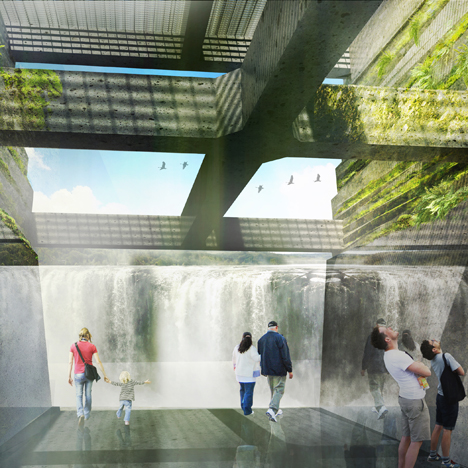
"The project has the potential to create a new public space that will allow people to experience the falls in a totally new way, to be able to hear the sounds and feel the spray of the water on your skin," said Michelle Delk, director of landscape architecture at Snøhetta.
Many of the existing vacant structures on the site will be preserved as a kind of urban ruin, and the buildings will be used to frame views of the falls.
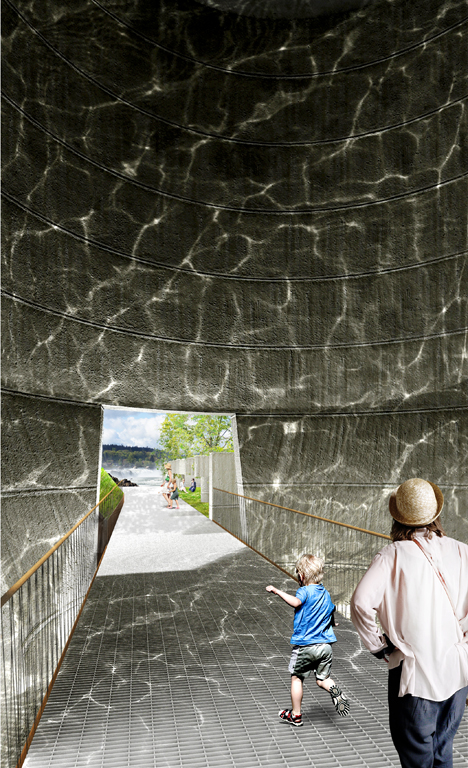
Landscaped areas will be woven through the 23-acre industrial site (9.3 hectares). "I envision great opportunities to reuse the buildings but also to re-establish habitat and create a more naturalised water's edge," Delk told Dezeen.
The public will also have access to a slice of the riverfront running four or five city blocks long with a width of about 150 feet (46 metres), according to Delk.
The site sits at the end of Oregon City's Main Street, and city planners say the project has the potential to catalyze economic development in the city's downtown district.
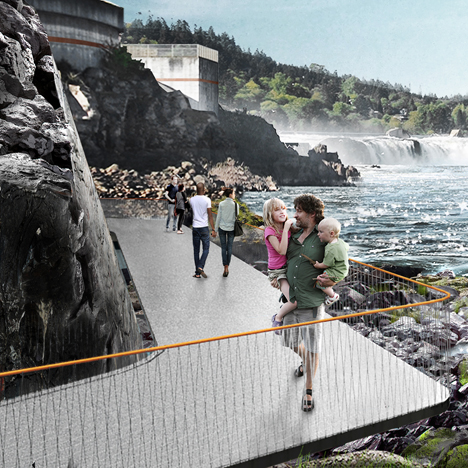
"We are going to allow people to see Willamette Falls in a way they haven't been able to experience it for more than a century and create housing, jobs, and public spaces at the same time," said Carlotta Colette, Portland Metro Councilor, in a statement.
An existing residential area lies on a bluff 40 to 50 feet (12 to 15 metres) above the falls, and is connected to the rest of the city by a municipal elevator – one of only two currently in operation in the US, according to the designers.
"The sectional condition is really interesting and unusual. We're looking at how to connect the site in a number of ways," said Delk.
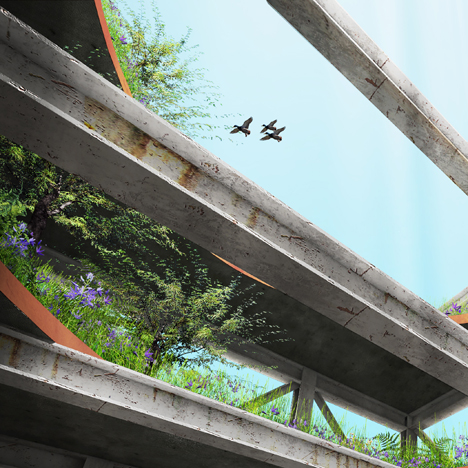
In addition to its scenic beauty, the Willamette Falls has cultural and historical significance. The first long-distance transmission of electricity came from power generated at the Falls. The terminus of the Oregon Trail – the main wagon route through the west in the 19th century – the Falls were also an important fishing area for Native Americans. According to the designers, the project will interpret these histories as well as make the site's complex geology legible to visitors.
No timeline for the scheme has been set. "We're just beginning to imagine and learn from everyone," said Delk.
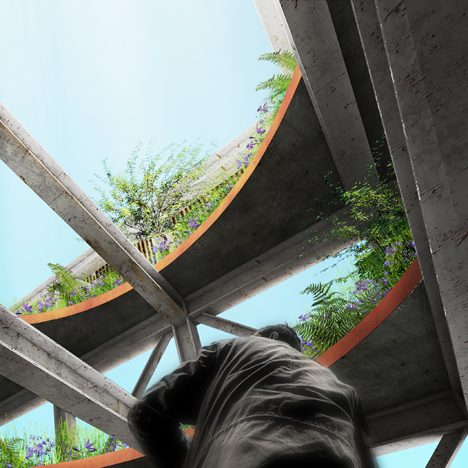
The project is being funded by four different public sector organisations and the site's landowner. A budget has not been made public.
Snøhetta and Mayer/Reed are also currently working on the development of the James Beard Public Market in Portland, Oregon.